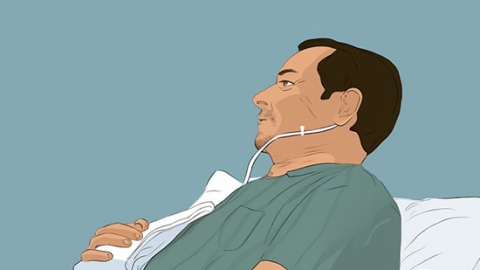What are the complications of epidemic hemorrhagic fever?
Hemorrhagic fever with renal syndrome (HFRS) can lead to complications such as acute renal failure, pulmonary edema, secondary infections, central nervous system involvement, and disseminated intravascular coagulation. These complications typically occur in the middle or later stages of the disease and may worsen the condition or even endanger life. Immediate medical attention is required if symptoms such as a sudden decrease in urine output, difficulty breathing, or persistent high fever develop after infection.

1. Acute renal failure: The most common complication, caused by kidney damage leading to reduced urine output and uremia. Patients may develop edema, nausea, and vomiting. Prompt dialysis is necessary; otherwise, multi-organ dysfunction may occur, making this one of the primary causes of death in HFRS.
2. Pulmonary edema: Caused by damage to pulmonary capillaries or heart failure, patients experience shortness of breath and cough up pink frothy sputum. Severe cases can progress to respiratory failure, requiring emergency oxygen therapy and treatment for heart failure to prevent rapid deterioration.
3. Secondary infections: Due to decreased immunity, patients are prone to concurrent infections in the lungs or urinary tract, presenting with fever, cough, or painful urination. Infections can exacerbate systemic damage; sensitive antibiotics should be selected based on the causative pathogen to control the spread of infection.
4. Central nervous system complications: Such as encephalitis or cerebral edema, which may present as headache, altered consciousness, or even seizures. These are often due to direct viral invasion or increased intracranial pressure. Treatment includes dehydration therapy to reduce intracranial pressure and prevent long-term neurological sequelae.
5. Disseminated intravascular coagulation (DIC): Resulting from coagulation disorders, patients may exhibit mucocutaneous bleeding or internal organ hemorrhage. Severe cases can lead to shock. Management includes replacement of clotting factors, anticoagulant therapy, and correction of coagulopathy.
Daily care should include close monitoring of body temperature, urine output, and mental status. Ensure adequate fluid intake (as directed by a physician), maintain skin hygiene to prevent infection, follow a light diet to support nutrition, take medications as prescribed, and promptly report any abnormalities to the doctor for timely adjustment of treatment.





